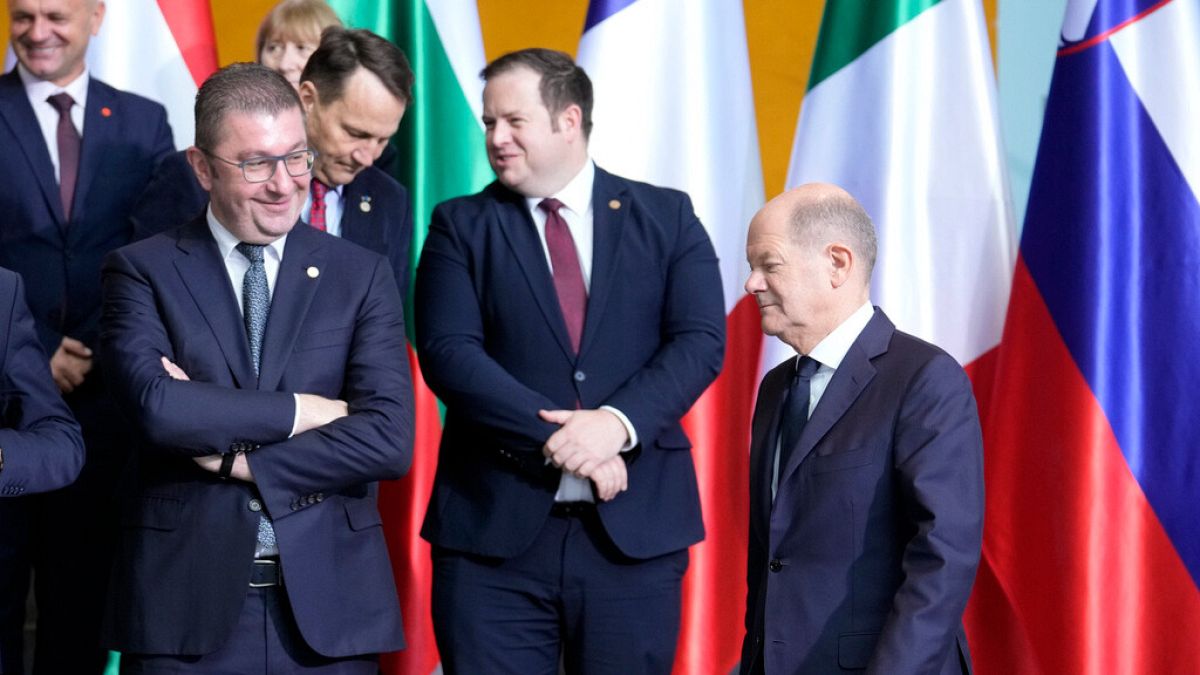The Berlin Process, initiated by Germany, aims to bring six Western Balkan states closer to the European Union. The recent summit in Berlin welcomed the heads of these countries, including Serbia, Albania, Bosnia and Herzegovina, Kosovo, Montenegro, and North Macedonia. The goal is to forge closer ties between these nations and the EU, with the hope of eventual EU membership. Only Kosovo is not an official candidate for membership, but the summit aims to create an action plan for a common regional market and a new mobility agreement. EU officials have emphasized the importance of a strategic partnership with the Western Balkans, especially in light of geopolitical concerns such as the war in Ukraine.
In attendance at the Berlin summit were German Chancellor Olaf Scholz, President of the European Commission Ursula von der Leyen, representatives from nine EU Member States, and various international organizations. The summit marks a continuation of the Western Balkan summits known as the Berlin Process, which have been held annually since 2014. This year’s summit focuses on further integrating the Western Balkan states into the EU in areas such as trade and education. A mobility agreement including access to higher education is set to be signed, highlighting the commitment to closer cooperation between the EU and the Western Balkans.
One of the key goals of the Berlin Process is to address the economic and political challenges faced by the Western Balkan states. By working towards a common regional market, these countries can strengthen their economies and foster greater stability in the region. The process also aims to promote democracy, rule of law, and human rights in the Western Balkans, aligning them more closely with EU values and standards. Ultimately, the objective is to create a pathway for these nations to join the EU, enhancing both their economic opportunities and geopolitical security.
The presence of Hungarian Prime Minister Viktor Orban at the summit highlights Hungary’s significant influence in the Western Balkans and its current presidency of the EU council. Hungary’s participation underscores the importance of the Western Balkan region to EU member states and the broader European community. The involvement of various stakeholders in the summit demonstrates a collective commitment to supporting the integration of the Western Balkan states into the EU. By fostering partnerships and collaboration, the EU and its member states can work together to address the challenges and opportunities in the region, ultimately promoting peace, stability, and prosperity in the Western Balkans.
Overall, the Berlin Process represents a proactive and inclusive approach to engaging with the Western Balkan states and advancing their integration into the EU. By creating a platform for dialogue and cooperation, the process aims to address complex issues, build trust, and foster mutual understanding between all parties involved. The recent summit in Berlin marks a significant step forward in this ongoing process, with concrete actions and agreements set to deepen the relationship between the EU and the Western Balkans. As the region continues to navigate various challenges, including political, economic, and social issues, the support and engagement of the EU and its member states are crucial in promoting stability and progress in the Western Balkans.











